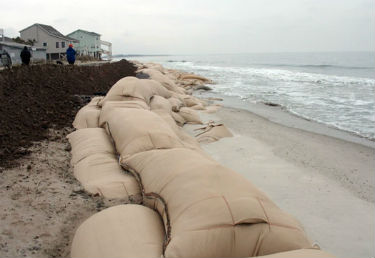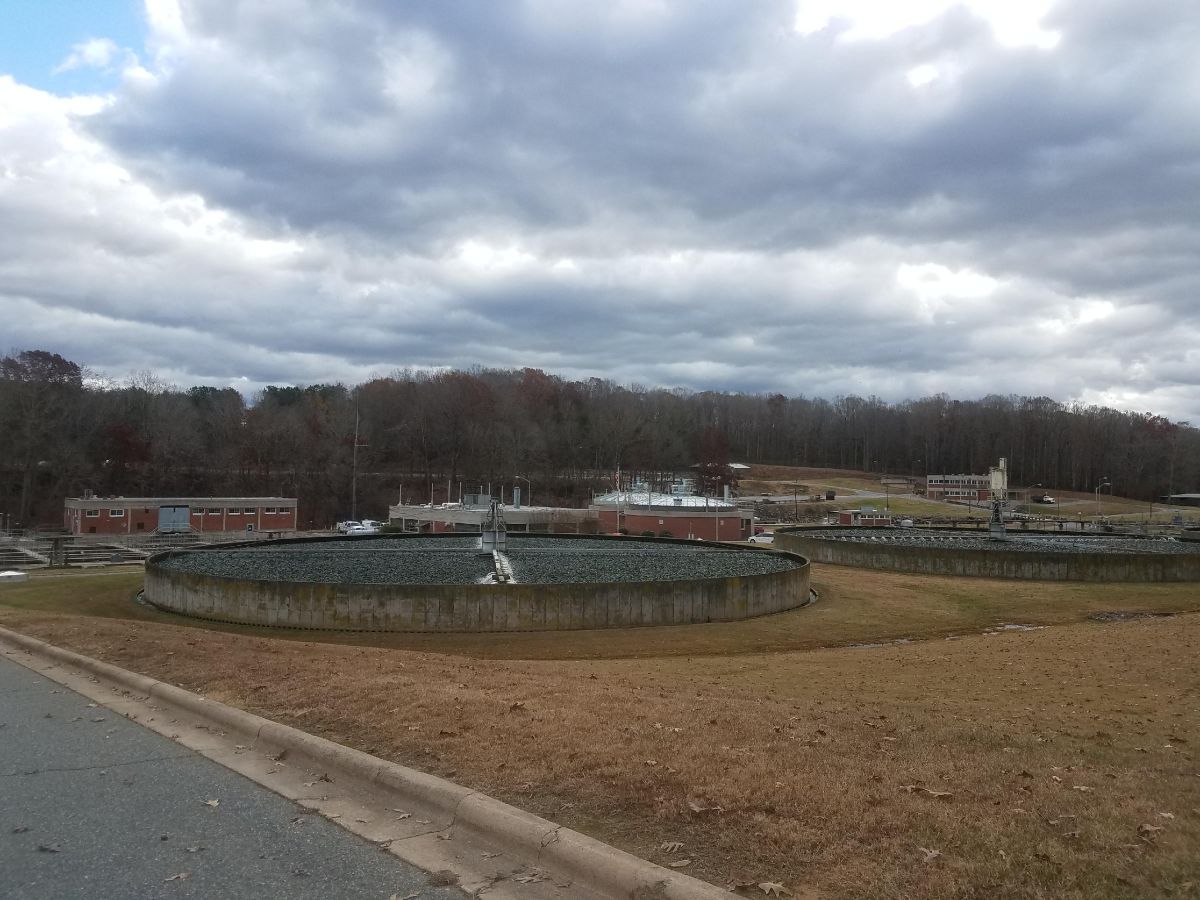RALEIGH — As the legislature enters a busy week with a key deadline for bill passage fast approaching, local officials on the coast continue to raise concerns about how the N.C. Senate’s latest proposal for changing environmental rules would affect their communities.
Among the many provisions in the omnibus Senate Bill 612, the Regulatory Reform Act of 2013, is a ban on local governments enacting environmental rules stricter than state or federal rules.
Supporter Spotlight
The bill, which saw only one committee hearing shortly after the introduction of a new version, passed the Senate early this month.
Erin Wynia, the manager of legislative regulatory issues for the N.C. League of Municipalities, said the frequency of inquires has dropped off since the bill’s introduction, but the league continues to hear from members concerned with the bill.
“There’s definitely concern it could undercut local governments from fulfilling their responsibilities,” Wynia said.
Cliff Ogburn, Nags Head town manager, said he has reviewed the bill and sees several potential conflicts. “The biggest concern is loss of local control,” he said.
If it wants to address septic tanks on oceanfront properties or limit the use of sandbags, a town may not be able to under the ban if a proposed ordinance exceeds standards in the Coastal Area Management Act, Ogburn said.
Supporter Spotlight
 Beach town officials worry that a N.C. Senate bill would prevent them from regulating sand bags on the beach. |
Wynia said the league and its members hope to be able to get a chance to raise issues with the bill when the N.C. House takes it up.
A House hearing on S612, which was co-sponsored by Sen. Harry Brown, R-Onslow, has not been scheduled.
Expect a furious week at the legislature. Crossover deadline, at which bills not passed by at least one chamber can’t be taken up for the rest of the session, is Thursday.The Senate budget also is expected soon,and a slew of other environmental bills are moving forward in the N.C. General Assembly.
Last week, the House revived and then quickly passed legislation that revamps state boards and commissions, including the state Coastal Resources Commission and the N.C. Environmental Management Commission. The bill has nearly the same language as a compromise that came out of a conference committee on Senate Bill 10, which the House killed last month. The two chambers have battled over how quickly to replace members of the environmental panels and a provision the Senate wants ending certain administrative judgeships.
House Bill 1011, dubbed “Son of S10,” would replace 90 current appointments to the Coastal Resources Commission, the Coastal Resources Advisory Council, the Environmental Management Commission and the state Wildlife Resources Commission.
It passed the House 69-42 on Thursday. The Senate has not scheduled a hearing on the bill.
The Week Ahead
The House is scheduled to vote today on a new version of House Bill 74, Periodic Review and Expiration of Rules, which its backer say will speed up the review and elimination of rules ordered under former Gov. Beverly Perdue and codified by the General Assembly in 2011.
The bill charges the state’s Rules Review Commission with setting up a timetable for the review of all rules and requires departments to gather public comment on rules that are contested. Each department would have to make a case for the contested rules or they automatically expire according to the commission’s timetable.
Also today, the House Regulatory Reform Committee will get a look at a new version of legislation by Rep. Chris Millis, R-Pender, setting up a fast track process for environmental permits.
On Tuesday, the Senate Agriculture and Natural Resources Committee will review Senate Bill 112, which would direct civil penalties collected by local governments under local erosion and sedimentation programs to the state’s fine and forfeiture fund. Under current law, the money goes back to the general fund of the local government.
The Ag committee also takes up a bill introduced by Sen. Bill Rabon, R-Brunswick, changing rules on inter-basin transfers and a bill introduced by Sen Harry Brown, R-Onslow, setting up a permit process for wind energy projects. Brown’s bill closely mirrors a measure recently passed by the House. Both bills give military officials a say in the location of projects.
Other Bills Worth Watching
 A bill in the N.C. House would prevent the state buildings to apply for LEED certification if it prevents the use of wood products made from trees harvested in the state. |
Here’s a roundup of a few important bills compiled by Nadia Luhr at the N.C. Conservation Network:
- House Bill 94 (Amend Environmental Laws 2013). Sponsored by Pat McElraft, R-Carteret; Ruth Samuelson, R-Mecklenburg; Chuck McGrady, R-Henderson-R; and two co-sponsors. This is a twin to S112. It clarifies that 10-year permits for sanitary landfills and transfer stations apply to operation and construction. It also makes modifications to the process for civil penalties under the sedimentation and pollution control act and requires civil penalties collected by local governments under an erosion and sedimentation control program to be remitted to the Civil Penalty and Forfeiture Fund. Under the current statute, they are credited to the general fund of the local government. The bill also repeals the requirement that air permit holders submit a written description of plans to reduce emissions of air contaminants by source reduction or recycling and requires the Commission for Public Health to adopt rules to provide notice of known contamination to applicants who seek to construct new private drinking water wells. The bill is being considered by the House Finance Committee.
- House Bill 505 (Extend SWCD Animal Waste Inspections). Sponsored by Ken Waddell, D-Bladen; Chris Millis, R-Pender; Frank Iler, R-Brunswick; Pat McElraft, R-Carteret; and two co-sponsors. The bill establishes an alternative inspection program for animal waste management systems. The N.C. Department of Environment and Natural Resources currently conducts inspections, but under the alternative program, the Division of Soil and Water Conservation of the Department of Agriculture and Consumer Services will conduct inspections in up to four counties. Local soil and water conservation districts serving those counties will be responsible for quick response to complaints and reported problems. The bill passed on the House floor on May 7 with a vote of 111-0 on second reading. It moved to the Senate and was referred to the Senate Committee on Agriculture, Environment and Natural Resources on 5/08.
- House Bill 628 (Protect/Promote N.C. Lumber). Sponsored by Michele Presnell, R-Haywood; Rick Catlin, R-New Hanover; and 14 cosponsors. The bill amends the current energy-efficiency standards for major public building construction projects by allowing projects to use an environmental building rating system, such as the internationally recognized LEED, only if they don’t use a credit system that disadvantages materials or products made or produced in North Carolina and give certification credits to wood certified under the Sustainable Forestry Initiative and the American Tree Farm System and certified by the Forest Stewardship Council. Those certification programs aren’t currently awarded points in the LEED program. The bill passed the House on second reading, 78-34, and a third reading is scheduled for today.
- House Bill 677 (Local Government Regulatory Reform). Sponsored by William Brawley, R-Mecklenburg; Tim Moffitt, R-Buncombe; Mike Stone, R-Harnett; and seven cosponsors. The bill prohibits cities and counties from enacting ordinances, rules or regulations that would require an employer to assume financial, legal or other responsibility for an employee’s carbon footprint, which may result in the employer being subject to a fine, fee or other monetary, legal or negative consequence. The bill is scheduled to be heard on the House floor today.







